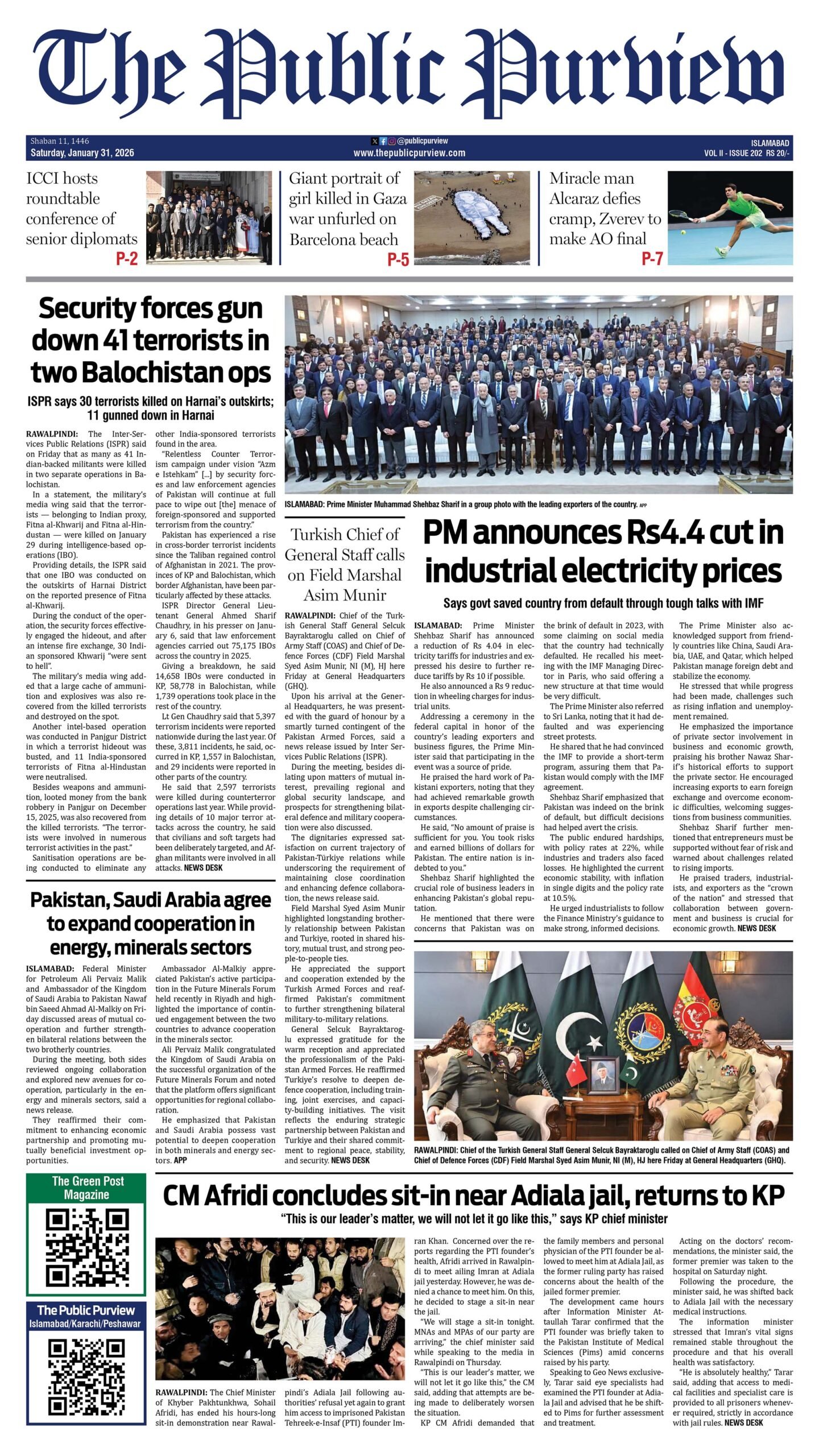ISLAMABAD — The NUST Institute of Policy Studies (NIPS) hosted the Islamabad Symposium 2025 on Wednesday, bringing together global leaders, diplomats, academics, and civil society representatives to explore the evolving relationship between the Global North and South.
Held at NUST’s main campus, the symposium focused on the theme “Balancing Relationship Between Global North and Global South: Challenges and Opportunities.” In his welcome address, Dr. Muhammad Zahid Latif, Rector of NUST, greeted chief guest Khawaja Muhammad Asif, Federal Minister for Defence, along with members of the diplomatic community.
Dr. Zahid noted that the post-World War II global order remains dominated by the Global North, often sidelining the needs of the Global South, which represents nearly 86% of the world’s population. He emphasized that inclusive multilateralism and collective development are the Global South’s strategic response to “weaponized interdependence.” He also reaffirmed NUST’s commitment to policy dialogue and research-driven development.
A special video message from H.E. Dr. Kao Kim Hourn, Secretary-General of ASEAN, praised NUST for fostering global cooperation and reiterated ASEAN’s Vision 2045, which centers on peace, inclusivity, and shared prosperity.
Defence Minister Khawaja Asif commended NIPS for organizing a timely and relevant event. He highlighted the disproportionate impact of climate change and geopolitical instability on developing nations and reaffirmed Pakistan’s commitment to peace, stability, and regional cooperation. He also encouraged youth to embrace innovation, discipline, and integrity.
The Islamabad Symposium 2025 featured two plenary sessions: “Evolving Geopolitics and Its Implications on the Changing Global Order,” moderated by Ambassador Masood Khalid, and “The New Geoeconomics: Rebalancing North-South Economic and Trade Relations,” led by Mr. Hamid Sharif, former Managing Director of the Asian Infrastructure Investment Bank (AIIB).
Key speakers included Senator Mushahid Hussain Sayed, Professor Zhang Jiadong of Fudan University, and Ambassador Zamir Akram. They called for restructuring global institutions to reflect fairness, equity, and inclusive representation. Other notable participants were Russian Ambassador H.E. Albert P. Khorev and Dr. Bruno de Oliveira Cruz from Brazil’s Institute for Applied Economic Research (IPEA).
Dr. Ashfaque Hasan Khan, Director General of NIPS, traced the shift from post-war unilateralism to today’s fragmented geopolitical landscape. He emphasized the growing influence of emerging blocs like BRICS and the SCO in reshaping global dynamics.
The event concluded with the launch of Dr. Zahid Latif’s book, Pakistan’s Search for Peace with Afghanistan: Statecraft, Policy, and Strategy. Defence Minister Khawaja Asif praised the work for offering a fresh perspective on Pakistan-Afghanistan relations and the pursuit of lasting peace.
The Islamabad Symposium 2025 reinforced the urgency of inclusive multilateralism and highlighted Pakistan’s role in shaping equitable global partnerships.






 Today's E-Paper
Today's E-Paper